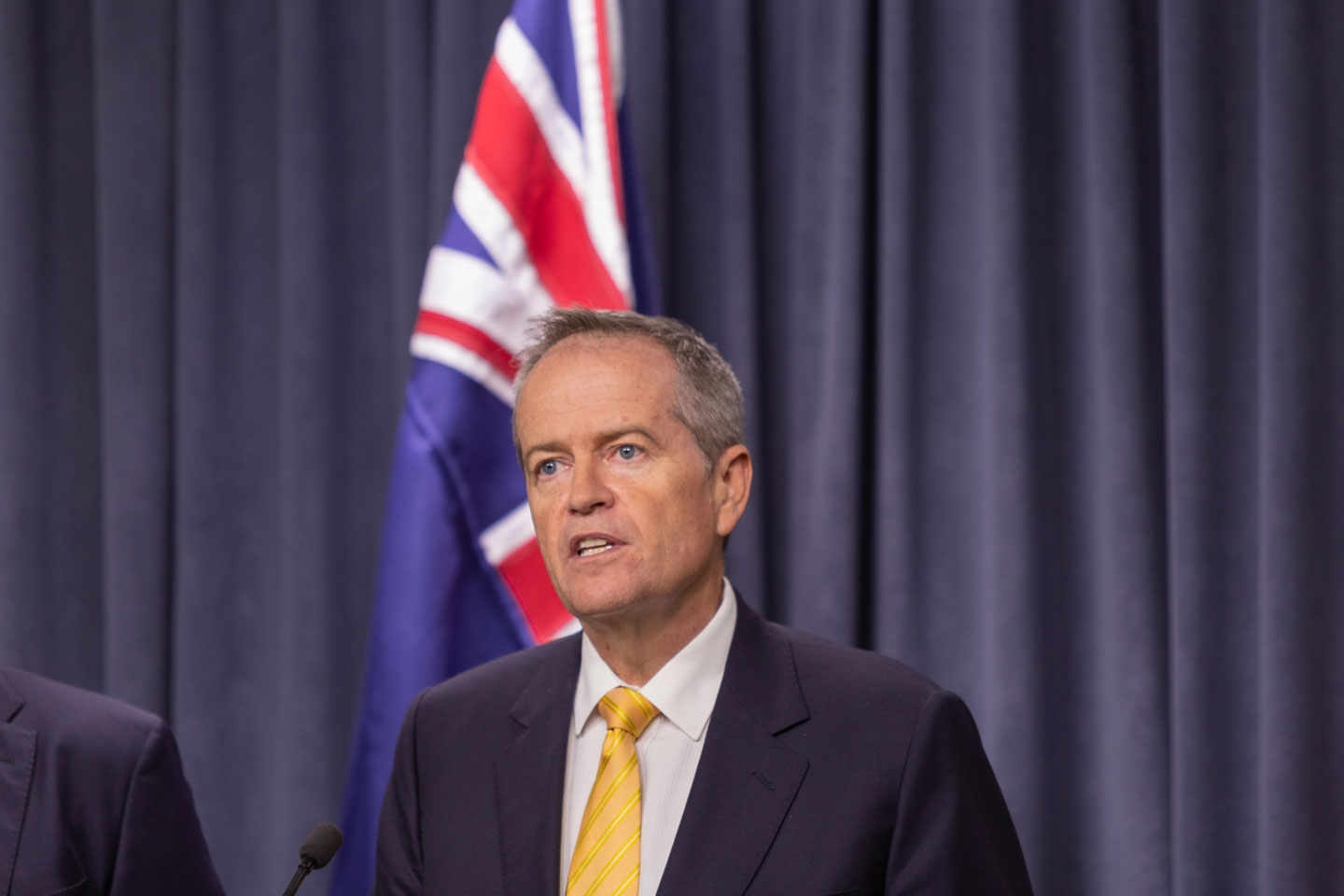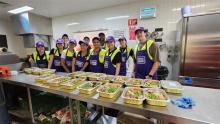

As Hon Bill Shorten MP takes on the role of Minister for the NDIS and Government Services as of early June 2022, all eyes will be on whether this continues to be a poisoned chalice – or a golden opportunity to improve the lot of those covered by the National Disability Insurance Scheme (NDIS).
For many, the enormous promise of the NDIS has been undermined by inefficiencies, poor co-ordination and a lack of collaboration between the NDIA and other agencies. Minister Shorten has already expressed that the NDIS must not be the ‘only lifeboat in the ocean’; it should be part of a tapestry of entities working together, including State government departments, service providers as well as the corporate sector, who should all look for opportunities to support and build upon the work of the agency.
But therein lies the NDIA’s greatest challenge – the ‘too many cooks’ curse which means red tape and decision times mean those who need the Scheme the most are not served in an optimal way.
To make some attempt to address these shortfalls, the Australian Parliament passed changes to the NDIS legislation earlier in the year to improve the Scheme with the aim of making processes easier and better for NDIS participants. As Not For Profits eye the new appointment with interest, several WA-based organisations have some advice for the incoming Minister.
STEP UP LEVELS OF SUPPORT
Special Olympics Australia, which is gearing up for the 2022 National Games to be held in Launceston, Tasmania, from 17 to 21 October with nearly 1,000 athletes with intellectual disabilities, is laser-focused on this topic.
Affecting approximately three per cent of the population, people with intellectual disability deserve to live as independently as they can and reach their full potential through access to education, job pathways, services to improve their physical, mental and emotional health and greater community acceptance,” said Special Olympics Australia Board Director, Tanya Brown.
“In Australia, sport plays a vital role in connecting people with disabilities to their communities and providing access to networks of people with shared interests. Special Olympics Australia helps provide these connections.
“With almost one in five Australians having a disability, service demand and community expectations are set to increase in the coming decade.”
As such, Ms Brown believes Mr Shorten should focus on workforce and service sustainability, to normalise differences and unleash the power of data.
“Family members, friends and communities provide immeasurable support to people with intellectual disability,” she said.
“With our population rapidly ageing, we need to plan how levels of support for people with intellectual disability can be, at the very least, maintained, but realistically greatly improved. Concern about the long-term support needs of sons and daughters, brothers and sisters prey heavily on the parents we meet, who worry about the future.”
BRIDGE THE GAPS
Uniting WA is also hopeful that a fresh set of eyes on the NDIS brief may result in positive developments.
“Uniting is encouraged by the new Minister’s commitment to get the NDIS back on track and his extensive engagement with the sector,” said Michael Chester, Co-CEO of Uniting WA.
“Many of the most vulnerable people in our community – including those with physical, intellectual and psychosocial disabilities – have complex needs that create barriers for them to access and/or obtain an adequate level of support from the NDIS.
“In addition, many people with these complex needs are falling through the gaps and being over-represented within homelessness communities – which Uniting WA witnesses – as well as the justice and healthcare systems.”
Uniting WA has amassed a number of examples of poor communication between departments, service providers and agencies, which have led to sub-optimal outcomes for the person seeking support. It’s hard to imagine that this is limited only to the experience of Uniting WA, and as such, an improvement across the board in terms of communication outcomes is very desirable.
“These communication breakdowns need to be addressed as a matter of urgency to improve outcomes for people with disability,” said Mr Chester.
To achieve this improvement will require an immediate uptick in collaboration between interdepartmental taskforces to discuss and resolve cases collaboratively, regular sector roundtables and an elevation of the Office of Disability’s role (in states that have established such an office) to have larger oversight and a co-ordination role.
CUTTING THE RED TAPE
Through its James Watson Centre facility, St Bart’s is the only recognised provider of homeless residential aged care in Western Australia.
James Watson is home for up to 40 men at any given time who have experienced chronic homelessness, including some who have aged prematurely as a result of their experiences with homelessness. Residents range in age from 54 through to those in their 90s.
With some James Watson residents being aged under 65 comes a need for St Bart’s to be an accredited NDIS provider, in addition to being accredited as an aged care provider by the Aged Care Quality and Safety Commission. The level of care required under the aged care standards is to an extremely high standard and will either equal or exceed those standards under NDIS.
St Bart’s Chief Executive Officer Samantha Drury said the organisation had a desire to scale up its homeless residential aged care services, including broadening the service to cater to older women who have experienced chronic homelessness, but is currently faced with an administrative burden of adhering to two regimes.
“Because we have men in our James Watson Centre facility who are younger than the aged care threshold of 65, we need to be accredited as an NDIS provider in addition to being an accredited aged care provider,” Ms Drury said.
“What this means is we have dealings with two different government departments, we have two different reporting streams, we have to complete two separate rounds of accreditation activities and we must make two separate accreditation payments to ultimately provide the exact same service to those in our aged care facility.”
To help reduce the cost and administrative burden on St Bart’s and other providers of homeless residential aged care for over 65s and those who have aged prematurely, Ms Drury is calling on the NDIA and Aged Care Quality and Safety Commission to implement an agreement whereby Aged Care standards are applied to all residents so that homeless residential aged care providers only have to meet the reporting needs of one governance stream.
“It is going to cost St Bart’s $6,500 to stay accredited under the NDIS, plus the cost of the time and effort of staff to report to both bodies and to prepare for two separate accreditations,” Ms Drury said.
“A large amount of what we have in place for aged care, which has a very high standard of care and requirements at governance, means we are already positioned to be, and remain, an NDIS provider.
“We are already meeting a very high standard for those in our service under aged care, so why shouldn’t that be sufficient to cover whatever accreditation, including NDIS accreditation, even if we have to be deemed an NDIS provider? It's the same service, so why the need for the double accreditation process?”
For under 65s who have aged prematurely as a result of experiencing chronic homelessness, Ms Drury says the NDIS is not the optimal funding instrument.
“Access to residential aged care is the right level of care for this demographic,” she said.
“Many of these community members have complex issues and need a blend of clinical and trauma-informed support, and that is something our James Watson Centre facility provides. Residents have access to 24/7 care and support and, with this, we see residents thrive and their health and wellbeing improves.
“Many have lived with us for a long time through this model. Residents also get to live with likeminded people who have experienced the same levels of trauma to what they have experienced.”
REMAINING COMPETITIVE
Uniting WA provides services under the NDIS with a focus on person-centred support, which is available through Perth and the Great Southern region. This includes shared accommodation (NDIS supported independent living), customised support with community access which is their one-on-one, tailored disability service and Positive Behaviour Support (PBS), which is available to participants with NDIS funding to support their mental health conditions.
Like many other NFPs, the ability to consistently deliver high quality NDIS-related services, is a complex minefield of rules, regulations and procedures that increases administration and creates a challenging business environment for providers operating with escalating costs and fixed pricing.
“Uniting has a long history supporting people with disability with highly complex needs and while the implementation of the NDIS aims to increase choice for participants, providers often face funding gaps when providing an adequate level of quality care and sometimes subsidise care to safely meet the needs of the participant, which can negatively impact an organisation’s cash flow,” said Mr Chester.
“Government must be cognisant of the challenges facing not-for-profits operating in the competitive market and ensure the services provided are fully funded to ensure continued quality care for participants.
DELIVERING HOPE, ENCOURAGING DREAMS
Foodbank WA offers opportunities to NDIS recipients to be gainfully employed, with a chance to build their own futures in a meaningful way.
“We would like Mr Shorten to look at increasing opportunities for people with disability to find employment in a role that they love,” said Kate O’ Hara, CEO of Foodbank WA.
“What may seem like a simple, repetitive task to a more able person can bring great joy and purpose to the lives of others. The level of satisfaction is for the incumbent to decide, after all. It would also be great to receive additional, supplementary funding for organisations like Foodbank WA to support further employment of people with disabilities. This may include funding for modified work spaces, and especially for qualified people to work with them around task development and leadership trajectories.”
As well as many other challenges, the pandemic has shone a light on the operation of disability services and the fragility of the workforce model. As COVID spread throughout the community, the workforce was affected in ways which directly impacted on participants in the scheme. Running in tandem to the ongoing issues around the pandemic, workforce rewards are a constant issue.
“Current pricing levels for NDIS services put us in very real danger of creating a sub-class of workers who are underemployed, underpaid and with no clear path for career advancement,” said Uniting WA’s Michael Chester.
“The delivery of quality services needs to be more closely aligned with an increase in wage levels that allows service providers to employ experienced people in secure, full-time positions. Currently, the margins on NDIS pricing for some supports are so slim and utilisation rates so high that a part-time or casualised workforce is the most effective and sustainable method of delivering services, leading to limited job security and few ongoing learning and development opportunities.
The future effects of a lack of investment in workforce reward will result in clients losing consistency of support and the chance to build long-term relationships with support workers as they’re lured away to more lucrative career choices.
As such, says Mr Chester, it is critical that the disability workforce and service providers are adequately resourced to ensure the long-term success of the NDIS.
INSPIRING THE NEXT GENERATION
Workforce supply is critical to success, with younger employees interested in diversity and inclusion. Gen Z and Millennials want work with purpose, giving the community services sector an opportunity to secure a pipeline of talent.
With the bid to host the Special Olympics World Games in Perth in 2027 lodged with the international body on 15 July, focus has turned to the legacy the Games will achieve, with the aspiration of Australia becoming the most inclusive and accessible nation in the world.
A legacy of the World Games in Abu Dhabi in 2019 was the United Arab Emirates’ introduction of the new official terminology “people of determination” into law, recognising the achievements of people with disabilities. Signs around the UAE were changed and now feature the term, which was met with praise nationally and internationally.
Special Olympics Australia as an organisation is keen to urge Minister Shorten to do everything in his power to normalise difference.
Language is powerful and we need to re-write the vocabulary surrounding disability and adopt a more contemporary approach that focuses on ability, believes Ms Brown.
“We need a dramatic shift like the UAE achieved with labelling”, said Ms Brown.
“Let’s work with corporate Australia, leading international experts and people with intellectual disability to reimagine a world where we focus on ability and accelerate a change in attitudes”.
There’s also a need to view a career around NDIS delivery as something positive, rather than a ‘last resort’.
Foodbank WA partnered with Rocky Bay 20 years ago to offer employment to their residents, an initiative which was subsidised by the Governement. The original crew of about 10 Rocky Bay residents had eroded to two over the years (through retirement and passing away).
“We tried repeatedly to get replacements and keep a team going but the Government had ‘grandfathered’ the scheme under which they were originally employed, which meant we could not employ any more people, in part because the work was considered ‘not meaningful enough’,” said Ms O’Hara.
“Keith and Belinda, who have been working at Foodbank WA for 20 years through the initiative (and all their previous co-workers) would disagree.”
MAXIMISING DATA CAPTURE
With the proliferation of automatic data capture, there is an opportunity to use this to transform services and deliver better outcomes for people with intellectual disability. To digitise this humanitarian movement and use technology to transform the lives of people with disability into the future, could be life-changing for many.
“Everyone is aware that just by swiping your card at the supermarket, searching on an internet browser or even entering some premises results in data being collected,” says Special Olympics Australia’s Tanya Brown.
“Marketers have used this information for decades to turn consumer preferences into products and convert interest into purchases. We need to adopt the same mindset in social services.
“For our sector, technology will never replace humans as a personal connection is required and necessary, however, we can use technology to make services efficient, programs more targeted and to deliver better outcomes,” said Ms Brown. “Really understanding service usage, patterns of demand and individual preferences is part of the sustainability solution, combined with the existing and emerging technology that surrounds us.”
To put the Special Olympics advice to Minister Shorten into context, athlete Ben Haack tells us to imagine a world where teachers, doctors, coaches, families and people without intellectual disability (97% of the global population) have a far higher level of acceptance and understanding. This would reduce information gaps and service provider overlaps and result in far greater community outcomes where people are not solely reliant on funding.
Ben Haack’s message to Minister Shorten is simple, “Basically, consider programs like those offered by Special Olympics as an investment in developing capacity without constantly funding it”.
ENSURING VOICES ARE HEARD
It’s hoped too that Minister Shorten will ensure that NDIS participants’ voices are centred at the heart of the NDIS operation to ensure the ongoing success of the scheme. After all, those who know what’s required are the people requiring the services – so it makes sense for their opinions and voices to be recognised and listened to at the centre of the system itself. Greater consultation needs to occur with individuals affected by decisions made about them – and those that have provided direct, ongoing care.
“Uniting supports increasing the number of people with disability on the NDIA Board, Executive and workforce so that the voice and experience of participants is returned to the scheme,” said Mr Chester.
“Steps like this must filter through the entirety of the Scheme and the NDIA’s approach when working with participants, and in the context of centring participants voices, Uniting encourages more education and understanding with the NDIA around the advantages of consulting closely and thinking creatively about a participant’s home and living options.”
In short, the NDIS must be more flexible, person-centred and imaginative to get the very best results from participants, their families and the dedicated workforce that cares for them.











